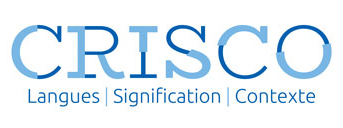
- Cet évènement est passé.
Finding competence in communicative interaction
30 septembre 2021 · 14h00 – 17h00
Conférence par de M. WILTSCHKO.
There is an ancient debate about whether language is an instrument for thought or for communication. The two counter-positions correlate with specific assumptions regarding the role of grammar in language and are characterized by different methodologies as well as different empirical questions. Roughly, the language-is-for-thought view is associated with the Chomskyan (formal) tradition and often comes with a commitment to innateness and autonomy. Over the past 20 years this commitment is one towards a human-specific Faculty of Language in the Narrow sense (FLN), a computational mechanism responsible for generating discreteness and recursion (via MERGE). The language-is-for-communication view is associated with the functional tradition with Levinson 2019 as a recent proponent in the form of the interactive-engine hypothesis.
I argue that this dichotomy is misleading, and that language is an integral part of both, human-specific thought and communication. The argument is based on the growing consensus that grammatical knowledge, a hallmark of human language, encompasses not only the propositional content of an utterance but also its communicative content. If communicative content is regulated by grammatical knowledge, then it follows that communication is as much a function of language as thought is.
Specifically, I show that grammar not only regulates the language of propositional thought but also the language of interaction: interactional language has the hallmarks of grammatical patterns and hence can neither be relegated to performance nor can it be reduced to functional pressure of interaction. Thus, the relevant question is not whether language is for thought or for communication but instead we should ask why and how language has both these functions. There is a human-specific capacity that we can characterize as grammatical knowledge (competence): it regulates thought and interaction and gives both its human-specific traits. I tentatively propose a new model of the language faculty which accommodates these findings. Specifically, I argue that the universal spine (in the sense of Wiltschko 2014, 2021) bridges between two non-linguistic cognitive capacities: perceptual categorization and social interaction. I further speculate that MERGE makes this possible by not only providing a mechanism for combining syntactic objects but also cognitive capacities.

